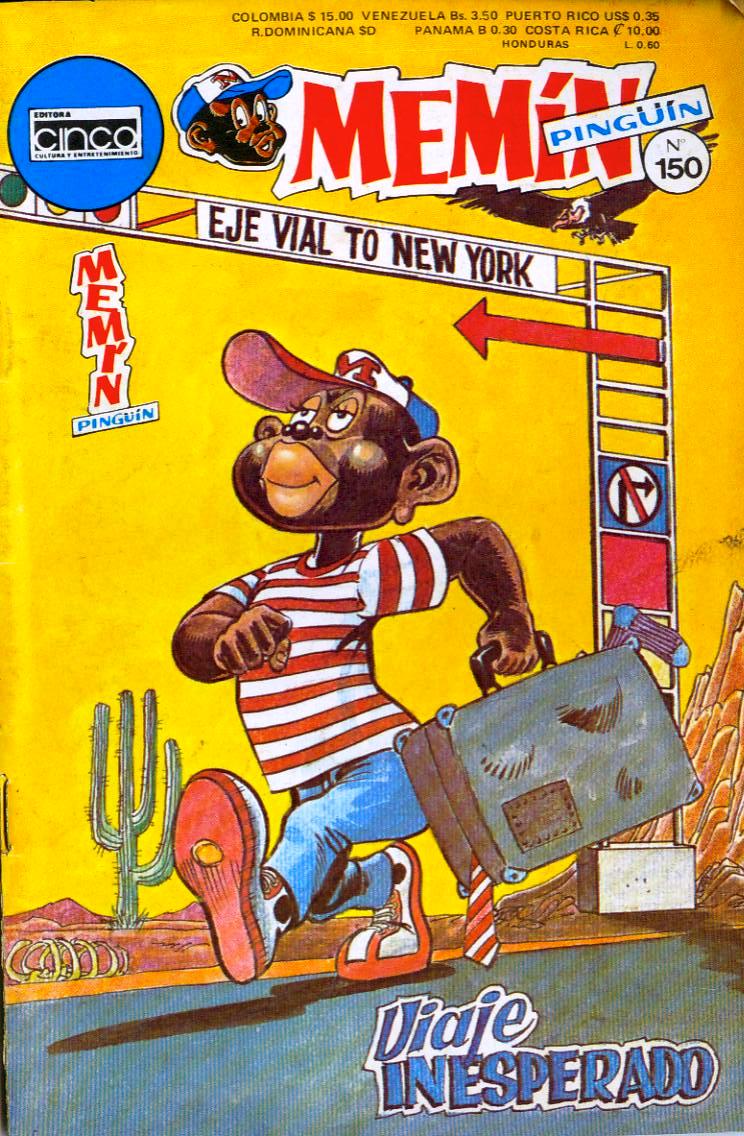

Exploring The World Of Memin Pinguin Comic: A Cultural Icon
Memin Pinguin comic has become an iconic representation of Mexican culture, blending humor, social commentary, and intricate storytelling. This beloved comic series, created by the talented cartoonist Yolanda Vargas Dulché, first appeared in 1947 and has since captivated audiences of all ages. With its unique characters and engaging plots, Memin Pinguin not only entertains but also sparks conversations about race, identity, and cultural heritage.
For many readers, Memin Pinguin is more than just a comic; it is a nostalgic journey into their childhood. The titular character, a young black boy, navigates his adventures in a society that often grapples with issues of race and discrimination. Through humor and relatable experiences, the comic addresses these themes, making it a powerful tool for reflection and discussion.
As we delve deeper into the world of Memin Pinguin, we uncover the reasons behind its lasting popularity and the impact it has had on Mexican culture. From its rich history to its modern adaptations, this comic continues to resonate with readers, reminding us of the importance of representation and inclusivity in media.
What is the History of Memin Pinguin Comic?
The Memin Pinguin comic was born in Mexico, crafted by Yolanda Vargas Dulché, who aimed to create a character that could resonate with the everyday experiences of children. The comic quickly gained popularity due to its relatable humor and the way it addressed social issues. Over the years, the comic has gone through various adaptations, including animated series and merchandise, solidifying its place in pop culture.
Who are the Key Characters in Memin Pinguin Comic?
- Memin Pinguin: The main character, a young boy with a heart of gold, known for his witty remarks and adventurous spirit.
- Don Chon: Memin's father, who provides humorous guidance and support throughout the series.
- La Abuelita: Memin’s grandmother, a source of wisdom and love in his life.
- Tribilín: Memin's close friend, who often joins him in his escapades.
How Has Memin Pinguin Comic Influenced Mexican Culture?
The influence of Memin Pinguin comic on Mexican culture is profound. The comic has not only entertained but also served as a platform for discussions about race and identity. It has opened doors for conversations on representation in media, making it a significant cultural artifact. The character of Memin has become a symbol of resilience and joy, embodying the complexities of Mexican society.
What Are the Themes Explored in Memin Pinguin Comic?
Memin Pinguin comic explores various themes that resonate with readers. Some of the key themes include:
- Identity: The comic often delves into what it means to be different in society.
- Friendship: Memin's adventures highlight the importance of companionship and loyalty.
- Social Issues: The comic addresses racism and discrimination, prompting readers to reflect on their own beliefs.
- Family Values: Memin’s family plays a crucial role in shaping his character and guiding his moral compass.
What Makes Memin Pinguin Comic Unique?
One of the defining features of Memin Pinguin comic is its distinctive art style and humor. The vibrant illustrations draw readers in, while the comedic elements keep them engaged. Moreover, the comic's ability to tackle serious topics with a light-hearted approach makes it unique, allowing for important conversations to unfold in a non-threatening manner.
Why is Memin Pinguin Comic Still Relevant Today?
Despite being over seventy years old, Memin Pinguin comic remains relevant today due to its timeless themes and relatable characters. In a world where discussions about race and representation are more important than ever, the comic serves as a reminder of the progress that still needs to be made. Modern adaptations and merchandise have introduced Memin to younger audiences, ensuring that this cultural icon will continue to thrive.
What Are the Future Prospects for Memin Pinguin Comic?
The future of Memin Pinguin comic looks promising, with plans for new adaptations and merchandise in the pipeline. As society continues to evolve, so too can the stories of Memin and his friends. This adaptability ensures that the comic will remain a relevant and cherished part of Mexican culture for generations to come.
In conclusion, Memin Pinguin comic is not just a comic strip; it is a cultural phenomenon that speaks to the heart of Mexican society. Through its humor and storytelling, it addresses critical social issues while providing readers with a sense of belonging and representation. As we look forward to the future of this beloved character, we can only anticipate the new adventures and discussions that await.
You Also Like
Understanding The Davis Fire Evacuation: A Guide For ResidentsThe Hidden Truth: Unraveling His Secret Family
Wealthy Unions: The Dynamics Of "Rich Marry Rich"
Taylor Swift's Measurements: A Deep Dive Into The Pop Icon's Physical Stats
Exploring The Fascinating World Of Porn Movies Names



